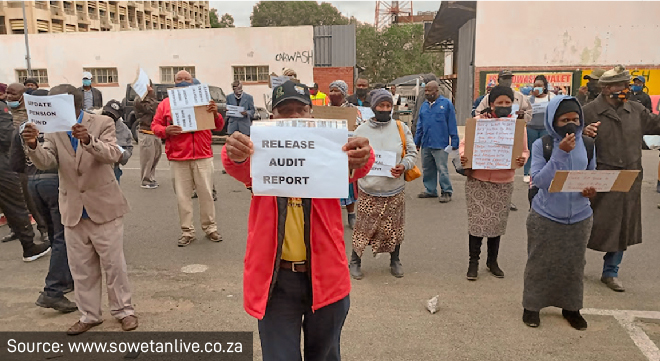The Financial Services Tribunal (FST) has rejected a reconsideration application objecting to the preliminary liquidation account drawn up for the Great North Transport Provident Fund. The application was brought by a “whistleblower” who was apparently instrumental in setting up a forensic investigation into the fund.
The fund went into voluntary liquidation in August 2020. It had been plagued by administrative and financial problems, including trustee incompetence and late payments by the participating employer, Great North Transport, an entity belonging to the Limpopo provincial government.
The fund’s preliminary liquidation account, preliminary balance sheet and preliminary distribution statement were opened for inspection between 16 July and 16 August 2021. Interested parties were given until 30 August to file objections with the FSCA. This was extended to 13 September.
Harry Masindi, whom a news report described as having “blown the lid off the multimillion-rand scandal”, objected to the liquidation of the fund.
Masindi, the founder of the Make It Happen Foundation, has maintained that members’ money was stolen from the fund. But a forensic investigation by BDO did not support Masindi’s allegation.
The investigation was set up by the Limpopo provincial government, at Masindi’s prompting.
BDO’s report, published in May last year, found that Great North Transport had paid contributions late, but it had not short-paid the fund.
The application was brought against the FSCA. However, the FST pointed out that the FSCA, apart from approving the appointment of the liquidator, plays no role in the decision to liquidate a fund voluntarily.
The applicants in the reconsideration matter were “Tlatlaru Klaas Mampa and Others”. But the FST found that the application was, in fact, brought by Masindi.
It said Masindi signed Mampa’s application form as “applicant/legal representative”. The “others” did not file application forms but filed affidavits that did not refer to Masindi, his NGO or a reconsideration application.
Section 230(1) of the Financial Sector Regulation Act states that “a person aggrieved” by a decision may file a reconsideration application.
The FST said Masindi was not “a person aggrieved” or a legal practitioner. Despite this, the FST considered the three grounds on which the application was brought.
1. No late-payment interest
The liquidator, on legal advice, said the fund’s claim against Great North Transport for late-payment interest had prescribed. The FSCA therefore directed that the liquidation account must be amended to reflect this and explain why the late-payment interest could not be recovered.
According to the FSCA, during the hearing, Masindi accepted that the claim had expired but argued that, because the liquidator had failed to recover the money in another matter, he was negligent (or worse).
The FST said this argument fell outside the scope of the grounds for objecting to the liquidation accounts and had no merit.
2. Allegation that members’ money was stolen
Masindi continued to assert that money held by the fund were misappropriated. He believed that the forensic investigation would have found evidence to confirm his allegation.
The FST said the forensic investigation did not find any evidence of this, and no evidence to contradict this has been provided to the liquidator, the FSCA or the tribunal.
3. ‘Errors and omissions’ relating to former employees
Masindi provided the FST with a number of affidavits from individuals who alleged they had been employees of Great North Transport and that their information was either wrong or had been omitted from the preliminary accounts.
The tribunal said there were four problems with this leg of the objection:
- The FSCA did not make any decision in relation to any specific person, and in particular, not in relation to these “applicants”. Therefore, the FST did not have the jurisdiction to entertain these complaints.
- The objections had not been lodged within the prescribed period set by section 28(7) of the Pension Funds Act (PFA) and were therefore time-barred. The FST does not have the power to extend or ignore statutory time limits.
- The applicants had not alleged that they were members of the fund at the date of liquidation. They had left Great North’s employment or, in some cases, had died many years ago. They did not claim that they did not receive all the benefits that had been due to them and that they were still members.
- Section 28(14) of the PFA states that all claims against a liquidated fund must be proved to the satisfaction of the liquidator. The affidavits did not comply with his requirements to prove a claim. Furthermore, disputes about such claims must be taken to the High Court; the FST does not have the jurisdiction to decide these issues.
For the above reasons, the FST dismissed the application.




Liquidation of a pension fund eats into the the funds and pensions of the employees , before any liquidation action , all funds within the account must be paid back to the pension fund contributors , in my opinion the actions of the FST is enriching some fat cats as is always the case in these liquidation actions and the honest people lose their money through legal processes. This should not be allowed, if the contributors to the fund cannot be guaranteed compensation.